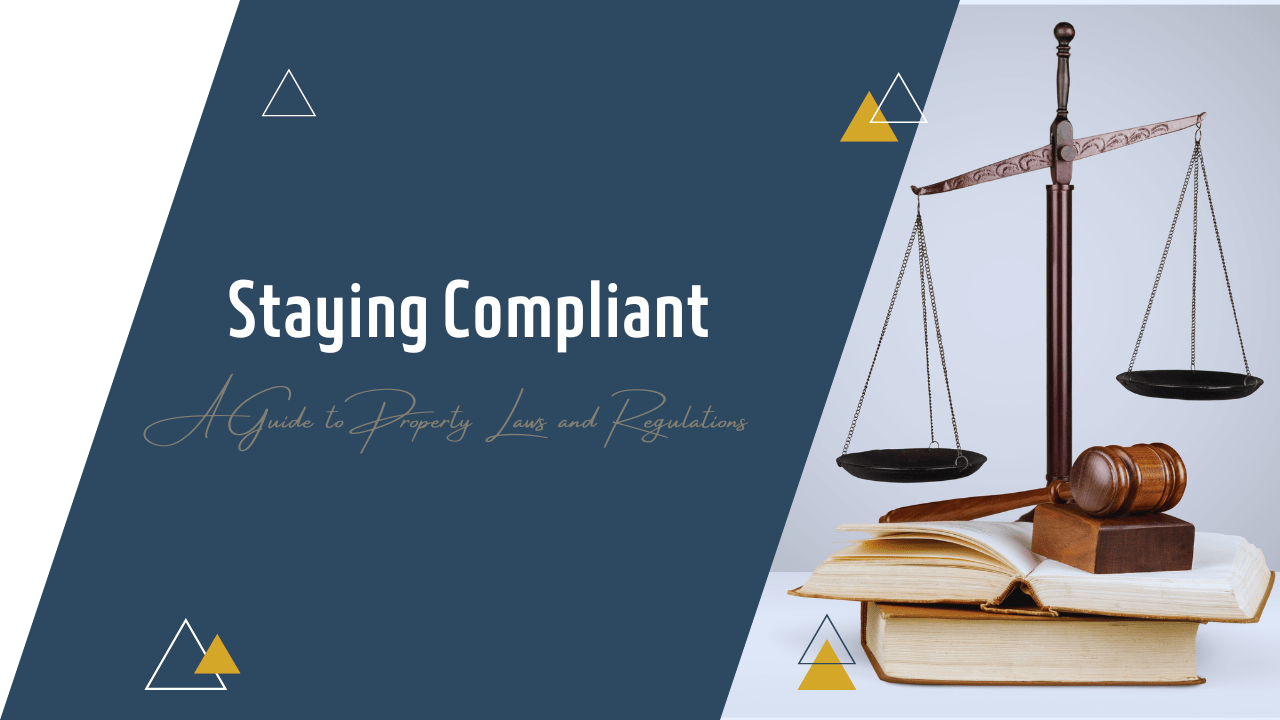Even if you’re new to renting out property in Richmond, Virginia, you surely are aware that there are a number of state, local, and federal laws that need your attention.
We’re providing a guide today, on how to stay compliant, even as Virginia’s laws change to meet the needs of tenant protections and property regulation.
Let’s take a look at some of the most fundamental laws you need, to know, such as fair housing laws and the Americans with Disabilities Act. We’ll also take a look at current regulations and requirements around things like habitability, eviction, and security deposits.
Fair Housing Act and Americans with Disabilities Act (ADA)
Let’s start with the most important federal laws that you’ll have to follow when you’re renting out property in Richmond. The Fair Housing Act prevents property owners, real estate agents, brokers, lenders, insurance brokers, and anyone involved in the housing industry from discriminating against applicants or tenants based on seven protected classes:
Color
Race
Disability
Familial status
National origin
Religion
Sex
Be careful, because it’s easy to make a mistake without realizing it. In fact, you may use potentially discriminatory language in your marketing materials. You might use tenant screening practices that aren’t consistent, leading you to approve one tenant when a more qualified tenant was denied.
You may not intentionally discriminate against someone for any of these reasons, but mistakes are easy to make. Be cautious, be consistent, and document everything. Always work with a property manager if you’re in doubt about your process or if you receive a complaint.
Virginia’s fair housing laws go a bit further when it comes to who is protected. In addition to all of the federal protected classes, Virginia also makes it illegal to discriminate against tenants or applicants based on elderliness, source of funds, sexual orientation, gender identity, or military status.
The Americans with Disabilities Act provides further protections to people who live with physical, intellectual, or emotional disabilities. Because of this law, you may find yourself having to make accommodations for tenants who need them. This could be a dedicated parking space outside a multifamily building. It might be wheelchair ramps into and out of your single-family home. The most popular accommodation is a service animal or a companion animal.
Make sure you know these laws. Penalties are steep if you’re found to violate them.
Habitability Laws in Virginia
As a rental property owner in Richmond, it’s your responsibility to provide a home for tenants that is safe and habitable. The property must meet all Virginia building and housing codes. There is also an implied warranty of habitability in the state, which requires you to provide your tenant with a property that has working electrical and plumbing systems. It further requires you to respond to tenant maintenance requests promptly, especially those emergency repairs that are needed to maintain habitability standards.
You’re also legally required to provide a sanitary property that’s free of health hazards such as mold, bed bugs, and pests or rodents.
If your property does not meet these requirements, the law provides the tenant with some options. Among these options is for the tenant to exercise their right to “repair and deduct” from rent.
It’s easy to stay ahead of habitability laws when you have a fast, responsive maintenance plan in place.
Eviction Laws in Richmond, Virginia
Eviction should always be a last resort, but sometimes you find yourself with no choice but to remove your tenant from your property. Make sure you’re following the law to the letter. If you make even a simple mistake, the court can throw out your eviction, making you start the entire process again.
Every eviction in Virginia starts with a written notice, and the amount of notice you give depends on the reason for eviction.
Nonpayment of Rent. This is the most common reason for eviction, and you’ll need to serve a Five-Day Notice to Pay Rent or Quit if your tenants are late paying rent. This notice gives tenants five days to pay the rent or move out of the home. If the five days come and go and your tenants still have not paid the rent, you can go to court to file the eviction lawsuit.
Lease Violations. When your tenant violates the lease agreement and the violation can be remedied to bring the tenant into compliance, you can serve a 30-Day Notice to Cure or Quit. This could be a violation such as an unauthorized pet. Your tenant will have 30 days to find a new home for that pet or move out of the property. If the tenant does not remedy the violation or move, then you can file an eviction lawsuit against the tenant at the end of the 30 days. When there’s a major violation in which the tenant cannot come into compliance, you’ll serve a 30-day Unconditional Quit Notice. You’ll need to serve the notice that specifies this unconditional act and identify it as a breach of the lease. The notice gives the tenant 30 days to move.
Criminal Acts. You’re not required to provide any notice when you evict because of a criminal act. This includes violence and drug activity.
We always recommend working with an attorney or a Richmond property manager when you find yourself needing to evict. It’s the best way to protect yourself and your property.
Virginia Security Deposit Laws
Security deposits can sometimes cause conflicts and disputes.
This is why it’s so important to follow the law carefully. Virginia state law prohibits you from collecting more than the equivalent of two months’ rent when a tenant is moving in. This means that if your rent is $2,000 per month, your security deposit cannot exceed $4,000.
You also have some strict timelines. Landlords must return the security deposit to the departing tenants within 45 days of the tenant moving out. You are not required to provide any advance notice of deductions you might be making, however, you do have to know what you’re permitted to charge the security deposit for, and what you’re not.
You are legally allowed to charge the security deposit for tenant damage that exceeds normal wear and tear, unpaid rent or utility bills, a lease break that leads to a vacancy, or any trash removal and cleaning you have to do at the property.
When you’re withholding some or all of the deposit, include an itemized list of what you’ve deducted and why. Be specific and include receipts, invoices, and other documentation to support what you’ve charged.
Creating a Legally Compliant Richmond Lease Agreement
Several disclosures are required in Virginia lease agreements. These include:
Information around mold that may have been discovered in your property, even if it’s gone. If mold has been detected at your property, let prospective tenants know when it was discovered and how it was remediated.
Lead paint in older homes. This is also a federal law because exposure to lead can cause health problems. If there’s lead paint on your walls or window sills, disclose this to your tenants.
Renovation or demolition plans. When you’re planning to make significant structural changes to the property within the next six months, you must let your tenants know.
You also must let your tenants know if you sell the property during the tenancy. You’ll be required to let your tenants know who the new owners are.
Protecting Your Richmond Tenant’s Right to Privacy
Notify your tenants before you enter the property. The only way around this is when there’s an emergency that requires you to go inside right away. If you want to enter to make routine repairs or conduct a maintenance check, then you must provide your tenants with a notice of at least 24 hours.
If the visit involves the application of insecticides or pesticides, then the notice period needs to be at least 48 hours.
Increasing the Rent in Virginia Rental Homes
 Good news for rental property owners; there’s no rent control in Virginia. You have the authority to set the rent wherever you want, and you can also raise it as much as you think it should. We always caution owners to pay attention to the market. Don’t raise the rent so much that you chase away your tenants.
Good news for rental property owners; there’s no rent control in Virginia. You have the authority to set the rent wherever you want, and you can also raise it as much as you think it should. We always caution owners to pay attention to the market. Don’t raise the rent so much that you chase away your tenants.
You’ll also need to know how much notice is required before the rental amount changes. You must give your tenants a 30-day written notice of the amount that your rent will increase. This typically happens a lease renewal time, so make sure you’re timing your offer of a lease renewal with the rental increase you plan to implement. If a tenant objects to the new rent amount, they have the right to vacate the unit within that 30-day period.
This is by no means an exhaustive list of the laws you need to know. It’s simply a summary of some of the most important requirements of any rental property owner in Richmond.
Let’s make sure you’re in compliance. You don’t want to fumble over an expensive and unnecessary legal mistake. Contact us at PMI Presidential for all of your Richmond property management needs.


